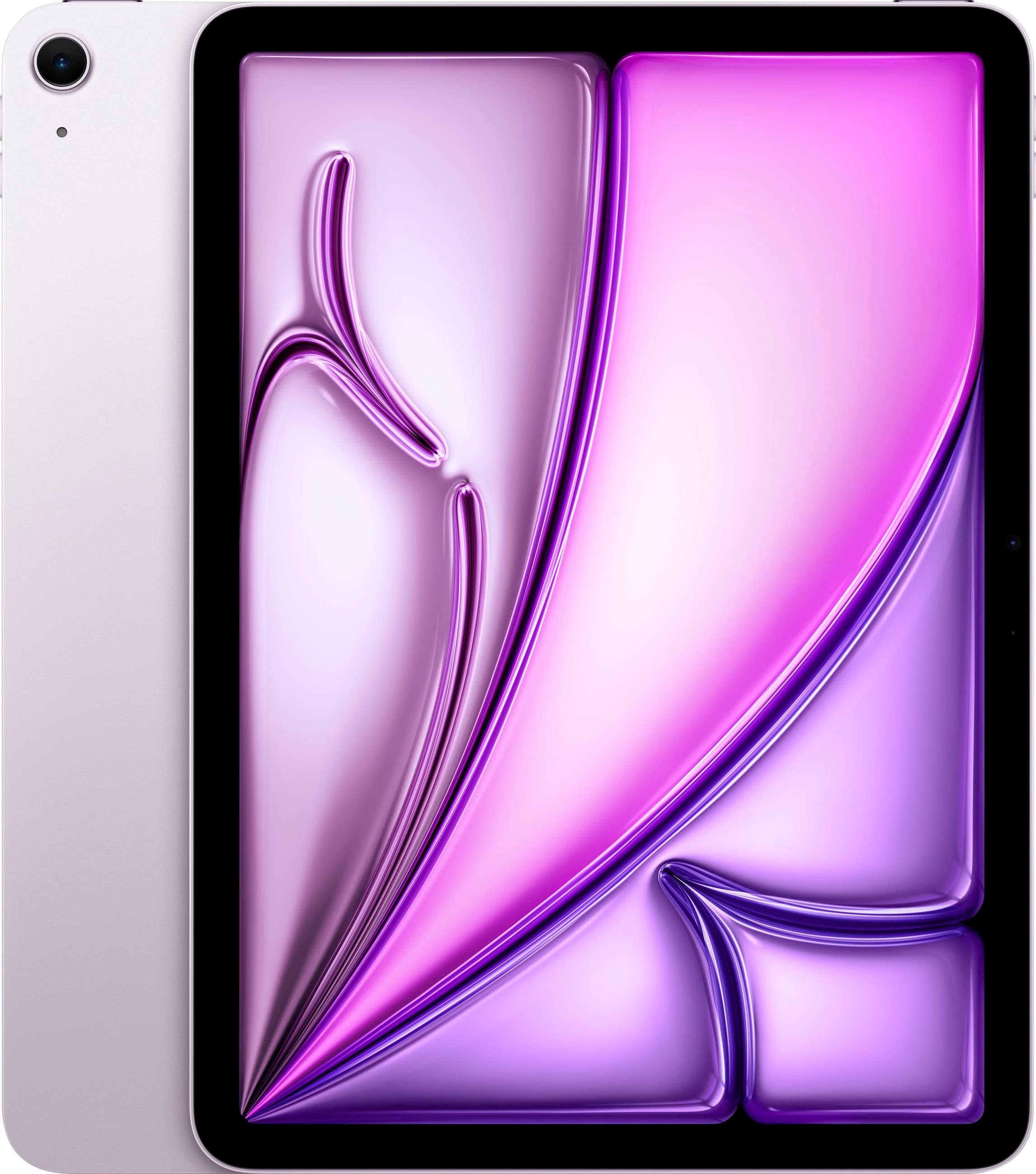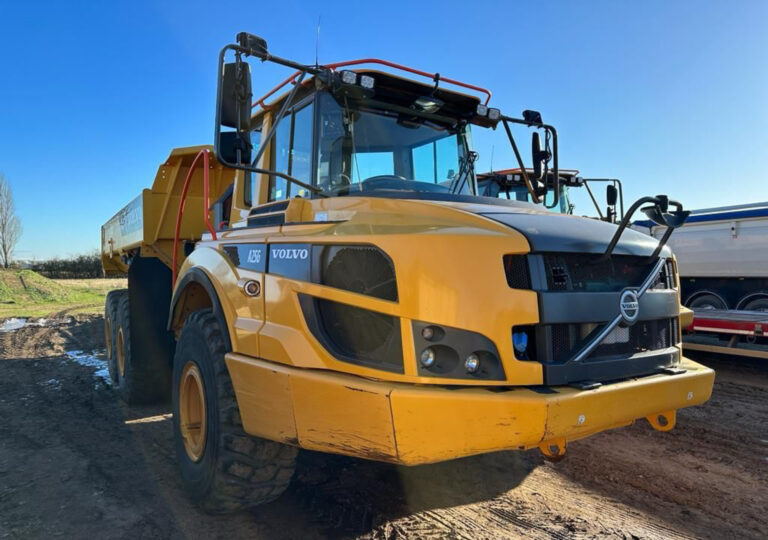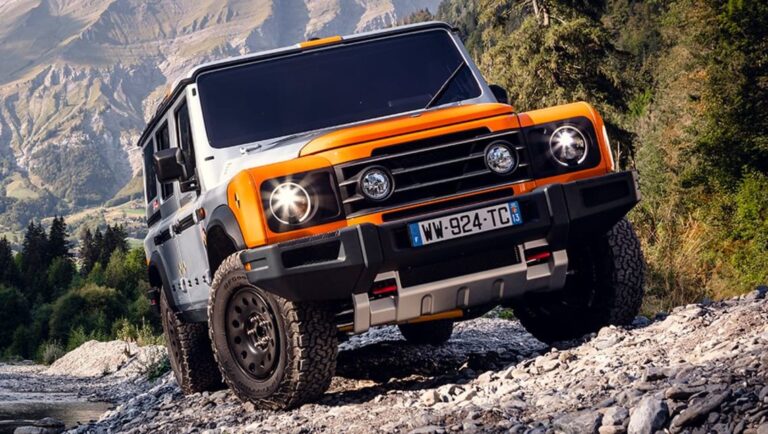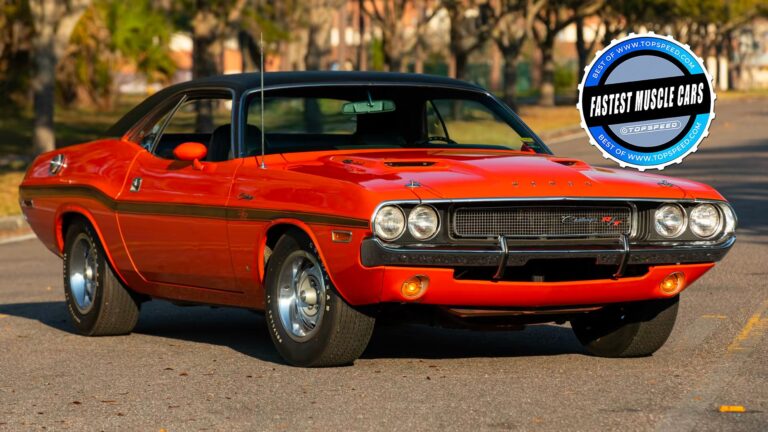Best Car Brands Australia: A Comprehensive Guide to Navigating the Aussie Automotive Landscape
Best Car Brands Australia: A Comprehensive Guide to Navigating the Aussie Automotive Landscape cars.truckstrend.com
The Australian car market is a dynamic and diverse ecosystem, reflecting the unique needs, vast landscapes, and evolving preferences of its consumers. From bustling city streets to rugged outback tracks, and from daily commutes to epic road trips, Australians demand vehicles that are not only reliable and safe but also offer value, comfort, and increasingly, environmental responsibility. When we talk about the "Best Car Brands Australia," we’re delving into a complex interplay of factors that go beyond mere sales figures. It encompasses a brand’s reputation for durability, its commitment to safety, the efficiency of its models, the strength of its after-sales service, and its ability to resonate with the diverse Australian lifestyle.
Choosing the right car is a significant investment and a deeply personal decision. This comprehensive guide aims to illuminate the top contenders in the Australian automotive arena, providing insights into what makes them stand out, the criteria by which they are judged, and practical advice to help you navigate the journey of selecting your next vehicle.
Best Car Brands Australia: A Comprehensive Guide to Navigating the Aussie Automotive Landscape
Understanding the Australian Car Market Landscape
Australia’s automotive landscape is characterised by a strong preference for SUVs and Utes (utility vehicles), reflecting the country’s love for outdoor activities, a growing need for versatile family vehicles, and the demands of various trades. While passenger cars (sedans, hatchbacks) still hold a segment, their market share has steadily declined. The market is highly competitive, with a mix of established global players and rapidly emerging brands, particularly from Asia, offering compelling value propositions.
Key trends shaping the market include:
- SUV Dominance: SUVs of all sizes continue to be the most popular vehicle type, offering perceived safety, higher driving position, and practical space.
- Ute Power: The popularity of 4×4 Utes, driven by both commercial and lifestyle buyers, remains immense.
- Electrification: The shift towards Electric Vehicles (EVs) and Hybrids is accelerating, driven by environmental consciousness, rising fuel prices, and increasing model availability.
- Technology & Safety: Consumers increasingly prioritise advanced safety features (ADAS – Advanced Driver-Assistance Systems) and integrated infotainment technology.

Criteria for "Best": What Australians Look For
Defining the "best" car brand is subjective, but in Australia, several key criteria consistently emerge as paramount for consumers:
- Reliability & Durability: Given Australia’s vast distances and often challenging conditions, a car’s ability to perform consistently and withstand wear and tear is critical. Breakdowns in remote areas are not just inconvenient; they can be dangerous. Brands with a proven track record of mechanical soundness and longevity are highly valued.
- Safety Features & ANCAP Rating: Australian consumers are highly safety-conscious. Vehicles with high ANCAP (Australasian New Car Assessment Program) safety ratings and a comprehensive suite of active and passive safety features (e.g., autonomous emergency braking, lane-keeping assist, multiple airbags) are preferred.
- Resale Value: The ability of a car to hold its value over time is a significant financial consideration. Brands known for strong resale value offer peace of mind and lower overall cost of ownership.
- Fuel Efficiency: With fluctuating and often high fuel prices, economical fuel consumption is a major selling point, whether through efficient petrol/diesel engines, hybrid powertrains, or pure electric solutions.
- After-Sales Service & Parts Availability: A wide dealer network, readily available spare parts, and reputable service centres are crucial for convenient and affordable maintenance throughout the car’s lifespan.
- Suitability for Australian Conditions: This can include factors like adequate ground clearance for unsealed roads, robust suspension, effective air conditioning for hot summers, and appropriate towing capacity for caravans or trailers.
- Technology & Comfort: Modern buyers expect intuitive infotainment systems, connectivity options (Apple CarPlay/Android Auto), comfortable interiors, and a smooth ride quality.
- Brand Reputation & Trust: A brand’s history, customer reviews, and perceived trustworthiness play a significant role in purchasing decisions.


Top Contenders: A Deep Dive into Leading Car Brands in Australia
Based on the criteria above and consistent market performance, here are some of the best car brands that consistently rank high in Australia:
1. The Undisputed King: Toyota
Toyota consistently tops sales charts and consumer satisfaction surveys in Australia.
- Strengths: Legendary reliability, exceptional resale value, vast and diverse model range (from small cars like the Corolla to the mighty LandCruiser and HiLux), strong hybrid offerings, extensive dealer network.
- Popular Models: HiLux (Australia’s best-selling vehicle), RAV4 (popular SUV), Corolla, Camry, LandCruiser Prado, C-HR.
- Why they’re "Best": Their vehicles are built to last, handle tough conditions, and offer low running costs, making them a default choice for many Australians.
2. The Stylish & Driver-Focused: Mazda
Mazda has successfully carved out a niche as a premium non-luxury brand, offering sophisticated design and engaging driving dynamics.
- Strengths: High-quality interiors, refined driving experience, stylish aesthetics, good safety ratings, strong build quality.
- Popular Models: CX-5 (bestselling medium SUV), Mazda3, Mazda2, CX-30, BT-50.
- Why they’re "Best": They provide a more upscale feel and enjoyable driving experience than many mainstream rivals, without the full premium price tag.
3. The Value & Innovation Powerhouses: Hyundai & Kia
These South Korean giants have transformed their image over the past two decades, now offering cutting-edge design, advanced technology, and compelling value.
- Strengths (Hyundai): Diverse model range, strong tech features, competitive pricing, good safety, expanding N performance range.
- Popular Models (Hyundai): i30, Tucson, Kona, Santa Fe, Ioniq 5.
- Strengths (Kia): Bold design, long warranties (7 years!), impressive features for the price, strong safety focus, rapid growth.
- Popular Models (Kia): Sportage, Seltos, Carnival, Sorento, EV6.
- Why they’re "Best": They offer a potent blend of modern design, advanced features, solid performance, and attractive warranties, making them excellent value propositions.
4. The All-Wheel Drive & Safety Champions: Subaru
Subaru’s symmetrical All-Wheel Drive (AWD) system and unwavering commitment to safety make them a favourite for those seeking stability and adventure.
- Strengths: Standard AWD across most models, excellent safety reputation (EyeSight driver assist), robust build quality, Boxer engine.
- Popular Models: Forester, Outback, XV/Crosstrek.
- Why they’re "Best": Ideal for those who frequently drive on unsealed roads, in varying weather conditions, or value active safety features.
5. The Utility & Performance Icon: Ford
While Ford’s passenger car lineup has shrunk, its dominance in the Ute segment and its performance heritage remain strong.
- Strengths: Market-leading Ranger Ute, impressive towing and off-road capability, advanced technology in their utility vehicles, strong performance vehicles (Mustang).
- Popular Models: Ranger, Everest (SUV based on Ranger).
- Why they’re "Best": For commercial users, adventurers, and those needing serious towing capacity, the Ranger and Everest are often the top choice.
6. The European Premium & Luxury: Mercedes-Benz, BMW, Audi, Volvo
These brands cater to the luxury segment, offering sophisticated engineering, opulent interiors, and cutting-edge technology.
- Strengths: Prestige, advanced safety systems (especially Volvo), powerful engines, superior comfort, and high levels of customisation.
- Popular Models: Mercedes-Benz C-Class/GLC, BMW 3 Series/X5, Audi A4/Q5, Volvo XC60/XC90.
- Why they’re "Best": For buyers prioritising status, ultimate comfort, performance, and the latest in automotive innovation.
7. The Rising Stars & EV Disruptors: MG, BYD, Tesla
These brands represent the new wave, often focusing on value, electric powertrains, or disruptive direct-to-consumer models.
- Strengths (MG/BYD): Highly competitive pricing, rapid expansion of EV offerings, strong warranty (MG).
- Strengths (Tesla): Market leader in EV technology, long range, extensive charging network, advanced self-driving features.
- Why they’re "Best": They are democratising EV ownership (MG/BYD) or setting the benchmark for electric performance and tech (Tesla).
Practical Advice for Choosing Your Next Car
-
Define Your Needs & Budget:
- Lifestyle: City driving, long commutes, family duties, off-road adventures, towing?
- Family Size: How many passengers? Do you need child seat anchors?
- Budget: Not just purchase price, but also insurance, fuel, servicing, and depreciation.
- Fuel Type: Petrol, diesel, hybrid, plug-in hybrid (PHEV), or full electric (EV)? Consider your driving patterns and access to charging.
-
Research Thoroughly:
- Read professional reviews from Australian automotive journalists.
- Check ANCAP safety ratings.
- Investigate running costs, typical servicing schedules, and parts availability.
- Look into customer satisfaction surveys and forums for real-world experiences.
-
Test Drive, Test Drive, Test Drive:
- Never buy a car without test driving it on roads similar to your typical usage.
- Pay attention to comfort, visibility, handling, engine performance, and cabin noise.
- Try parking it to assess maneuverability.
-
Consider Total Cost of Ownership (TCO):
- The purchase price is only one part of the equation. Factor in depreciation, insurance premiums, registration, fuel, and servicing costs over the vehicle’s lifespan.
-
New vs. Used:
- New cars offer the latest tech, full warranty, and no prior history.
- Used cars offer significant savings on depreciation and can be excellent value if well-maintained.
-
Financing Options:
- Explore different financing options (car loans, novated leases) and compare interest rates and terms.
Challenges and Considerations
- Supply Chain Issues: Global events can impact vehicle availability, leading to long wait times for popular models.
- Rising Costs: Inflation and increased demand can drive up new car prices and running costs.
- EV Transition: While exciting, the shift to EVs brings considerations like charging infrastructure, range anxiety, and higher upfront costs (though potentially lower running costs).
- Maintaining Resale Value: Keep your vehicle well-maintained, service it according to the manufacturer’s schedule, and keep a clean history to maximise its resale value.
Table: Representative Best Car Brands in Australia & Key Information
| Brand | Origin | Popular Model (Example) | Starting Price Range (AUD, Est.)* | Key Strengths | Target Audience / Niche |
|---|---|---|---|---|---|
| Toyota | Japan | RAV4 Hybrid | $40,000 – $60,000 | Unmatched reliability, high resale, extensive dealer network, hybrid tech. | Families, commuters, practical buyers, fleet operators |
| Mazda | Japan | CX-5 | $37,000 – $55,000 | Premium feel, engaging driving dynamics, stylish design, quality interiors. | Urban professionals, small families, design-conscious |
| Hyundai | South Korea | Tucson | $36,000 – $55,000 | Excellent value, modern design, strong technology, diverse range. | Tech-savvy buyers, families, urban dwellers |
| Kia | South Korea | Sportage | $35,000 – $55,000 | Bold design, long 7-year warranty, feature-packed, strong safety. | Value-conscious, design-focused buyers, families |
| Subaru | Japan | Forester | $39,000 – $55,000 | Standard Symmetrical AWD, top-tier safety (EyeSight), robust for adventure. | Outdoor enthusiasts, families, safety-conscious |
| Ford | USA | Ranger | $36,000 – $85,000 | Market-leading Ute, robust, strong towing/off-road capability. | Tradies, adventurers, rural buyers, commercial users |
| Mitsubishi | Japan | Outlander | $37,000 – $65,000 | Value-oriented SUVs, practical, popular PHEV option. | Budget-conscious families, urban/suburban |
| Honda | Japan | CR-V | $44,000 – $57,000 | Renowned reliability, fuel efficiency, practical and comfortable interiors. | Urban families, those seeking comfort and dependability |
| Nissan | Japan | X-Trail | $37,000 – $55,000 | Family-friendly SUVs, practical features, E-POWER hybrid option. | Families, urban/suburban commuters |
| MG | China | ZS EV | $40,000 – $50,000 | Highly affordable EVs/SUVs, strong value proposition, long warranty. | Budget-conscious EV buyers, first-time buyers |
| Tesla | USA | Model 3 | $60,000 – $90,000 | Leading EV technology, performance, extensive Supercharger network. | Early adopters, tech enthusiasts, premium EV buyers |
| Mercedes-Benz | Germany | C-Class / GLC | $80,000 – $120,000 | Luxury, prestige, advanced technology, superior comfort and refinement. | Affluent buyers, status-seekers, luxury segment |
| BMW | Germany | 3 Series / X3 | $75,000 – $120,000 | Dynamic driving, sporty performance, luxurious interiors, strong tech. | Enthusiasts, executive, performance-oriented buyers |
| Audi | Germany | Q5 | $75,000 – $100,000 | Refined luxury, quattro AWD, sophisticated design, advanced infotainment. | Executive, design-conscious, luxury SUV buyers |
| Volvo | Sweden | XC60 | $70,000 – $100,000 | Unrivalled safety reputation, minimalist Scandinavian design, comfort. | Safety-focused families, environmentally-conscious luxury |
*Disclaimer: Prices are approximate Australian starting Manufacturer’s Suggested Retail Price (MSRP) or estimated drive-away price for base models at the time of writing. Actual prices can vary significantly based on trim level, options, dealer promotions, and location. Always check with official dealerships for the latest pricing.
Frequently Asked Questions (FAQ) about Best Car Brands in Australia
Q1: What is the most reliable car brand in Australia?
A1: Toyota consistently ranks as the most reliable car brand in Australia, known for its robust engineering and long-term durability. Mazda and Subaru also have strong reputations for reliability.
Q2: Which car brands have the best resale value in Australia?
A2: Brands like Toyota, Mazda, and Subaru typically hold their value very well in Australia. Ford’s Ranger Ute also maintains strong resale due to high demand.
Q3: Are Chinese car brands good in Australia?
A3: Chinese brands like MG and BYD are rapidly gaining market share in Australia. They offer competitive pricing, increasingly good features, and improving safety ratings, making them strong value propositions, particularly in the EV segment. Their quality and long-term reliability are continually improving.
Q4: What are the best car brands for families in Australia?
A4: For families, brands offering spacious and safe SUVs or people movers are ideal. Toyota (RAV4, Kluger, Prado), Hyundai (Tucson, Santa Fe), Kia (Sportage, Sorento, Carnival), Mazda (CX-5, CX-8, CX-9), and Subaru (Forester, Outback) are popular choices due to their practicality, safety features, and reliability.
Q5: Which car brands are best for fuel efficiency?
A5: For fuel efficiency, hybrid models from Toyota (e.g., RAV4 Hybrid, Corolla Hybrid) and Honda are excellent. Smaller city cars from brands like Mazda and Hyundai are also efficient. For pure electric efficiency, Tesla, MG, and BYD are leading the charge.
Q6: How important is an ANCAP safety rating in Australia?
A6: ANCAP (Australasian New Car Assessment Program) safety ratings are highly important in Australia. A 5-star ANCAP rating is a significant factor for many buyers, indicating that the vehicle meets stringent safety standards and offers comprehensive protection and driver assistance systems.
Q7: Should I buy a new or used car from a "best" brand?
A7: This depends on your budget and priorities. New cars offer the latest technology, full manufacturer warranty, and the peace of mind of being the first owner. Used cars, especially from reputable brands known for reliability and resale, can offer significant savings on depreciation, making them a great value proposition if properly inspected and maintained.
Conclusion
Choosing the "Best Car Brands Australia" is not about finding a single definitive answer, but rather identifying the brands that consistently deliver on the priorities of Australian consumers. Whether it’s the legendary reliability of Toyota, the sophisticated driving experience of Mazda, the undeniable value of Hyundai and Kia, the rugged capability of Ford, or the pioneering spirit of EV brands like Tesla, each top contender offers unique strengths.
By understanding your own needs, thoroughly researching, and taking advantage of test drives, you can confidently navigate the diverse Australian automotive market. Ultimately, the best car brand for you will be the one that perfectly aligns with your lifestyle, budget, and driving aspirations, ensuring many years of safe, reliable, and enjoyable motoring on Australia’s unique roads.





